7 Helpful Money Habits I Picked Up In My 30s After Making Lots Of Mistakes In My 20s
If you had told me in my 20s that I was going to become a personal finance writer and editor, I never would have believed it. Not in a million years.
Apple TV+ / Via giphy.com
I didn't learn much about money growing up. I had a savings account that I put my birthday money and allowance in, but nobody ever told me about aaaaall the things, like credit scores, investing for retirement, the many kinds of insurances, or the basics of money management. So I spent most of my 20s guessing and improvising — and making a lot of mistakes along the way.
After college, I lived in my hometown of San Diego and made between $30,000 and $36,000 a year working for call centers and start-ups. I was living paycheck to paycheck and was constantly stressed about money. Though I could generally cover all my regular monthly expenses, other bills like my car registration constantly caught me by surprise.

I'm very privileged not to have student loans thanks to my mom, who worked as a registered nurse. I worked my way through community college, and she helped cover my final two years when I transferred to a university in-state in 2008. But I have health conditions that require regular attention, so medical bills and medical debt really held me back. Plus, worries about how I would pay for treatment if my health worsens are ever-present.
During my 20s, I was so stressed that it was nearly impossible for me to think clearly about my finances or learn how things worked. I felt very powerless and in way over my head.
Then, after a layoff, I accepted a random freelance gig where I had to write about money. I had no idea what I was doing, but I needed the money, so I did some research and made it work. One gig turned into another gig, then another, and the next thing I knew, I was a thirtysomething personal finance writer.
I learned a lot about money really quickly, but changing my habits happened slower. It took me a few years to really put my new money knowledge into practice, which I think was the right pace for me. If I'd tried to change everything all at once, it probably wouldn't have worked, and I might have given up.
My finances are still a work in progress, but I've made these seven changes in my 30s that have really helped me feel more secure:
1.In my 20s, I avoided my finances as much as possible. I paid my bills and stuff, but I really only did the bare minimum and never planned ahead.
NBC / Via giphy.com
When I first started writing and learning about money, I really compartmentalized my work away from my life. I knew what I was learning was important, but I kinda treated it like it belonged to a fictional universe. I just knew that if I started to think too much or look too closely at my finances, that I would get overwhelmed and possibly trigger a panic attack.
But as I spent more and more time writing about money, I started to feel like it might actually be possible for me to make some changes. One day, I sat down after work and made a list of all my debts. I had just learned about using the snowball method to pay off debt, and I thought, why not try applying what I'd learned, just this once? So I took my list and made a plan to pay off my credit card, medical debt, and vet bills.
Now I tackle my finances head-on instead.
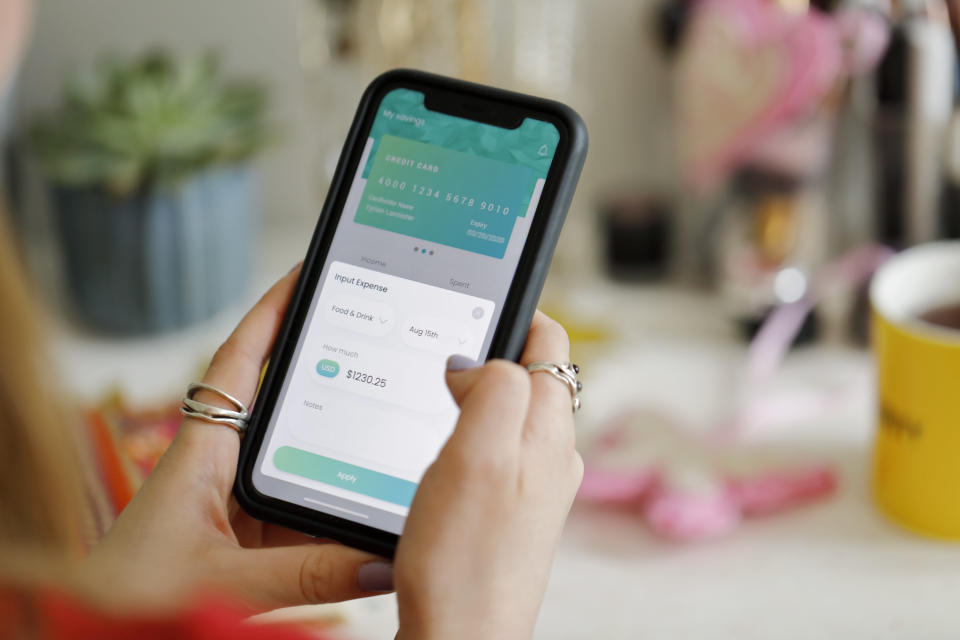
Once I'd paid off one debt, I was more motivated to pay down the others, and looking at my finances became less and less scary the more I did it. These days, I'm in the habit of checking my Mint app first thing in the morning to see my balances, net worth, spending, and credit score. I've found that staying on top of my money makes me feel more in control, which actually helps me keep my anxious feelings at bay.
2.I used to have lower credit scores, which I also avoided looking at.
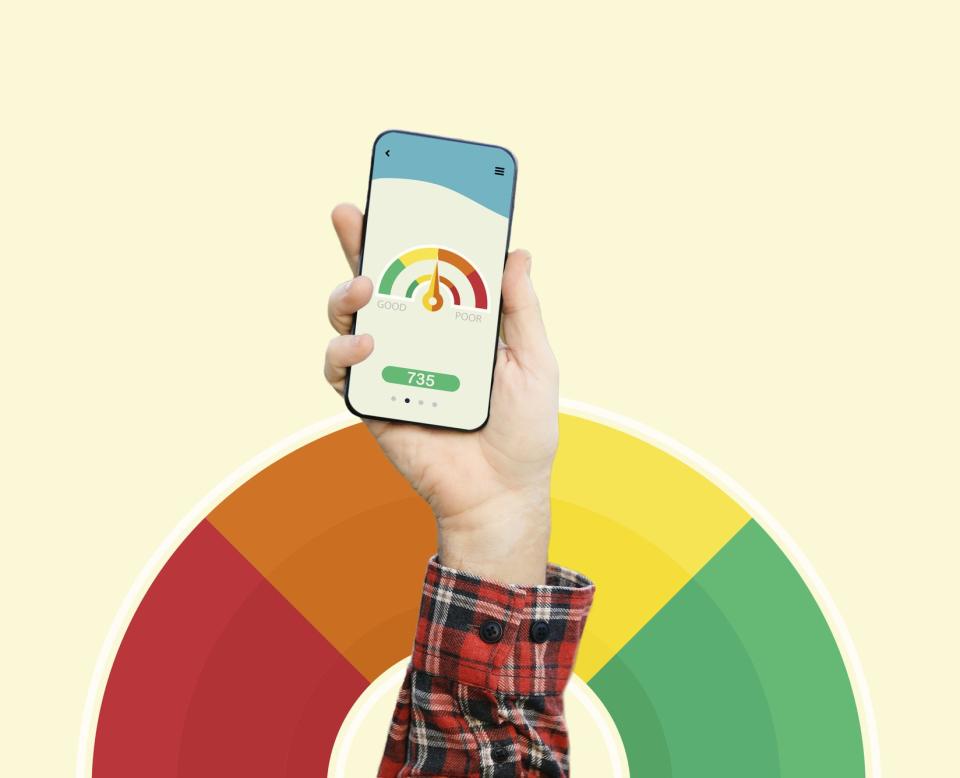
In my 20s, my credit scores were in the 500s. I'd had a medical bill go to collections because my insurance decided not to cover a procedure after all, but I was too confused to notice it had happened until it was too late (I also got dumped via text while recovering, so that really just sucked all around). And I had a credit card that I was only making minimum payments on, so the balance never really went down.
In my 30s, I've brought my credit scores up and started monitoring them.
Fox / Via giphy.com
For me, paying off credit card and medical debt went a long way toward raising my credit scores. I also opened a second credit card, which actually raised my score by giving me more available credit. I put a couple of small monthly bills on the new card, only used it for those bills, and paid it off in full each month, which added to my positive payment history.
Now, my scores are in the 700s, and I keep a close eye on my credit reports at all three bureaus: Experian, Equifax, and Transunion. I like Experian's credit monitoring app and also use Credit Karma to keep an eye on my reports with Equifax and Transunion. If I spot an error on my credit reports, I can alert the bureaus right away, and I get emails any time new info gets added to my reports, which helps me protect myself from identity theft.
3.In my 20s, I wasn't strategic with my spending and just winged it week to week.
Adult Swim / Via giphy.com
If I felt like occasionally shopping online for a little impulse treat or splurging on lunch, I used to just do it if I had the money in my account. I thought that if I didn't spend money when I had it, I'd never get a chance to spend it on anything fun. But once I started tracking my spending, it forced me to think more critically about everything I buy.
Now I track my spending, use a budget, and think a lot differently about my purchasing decisions.
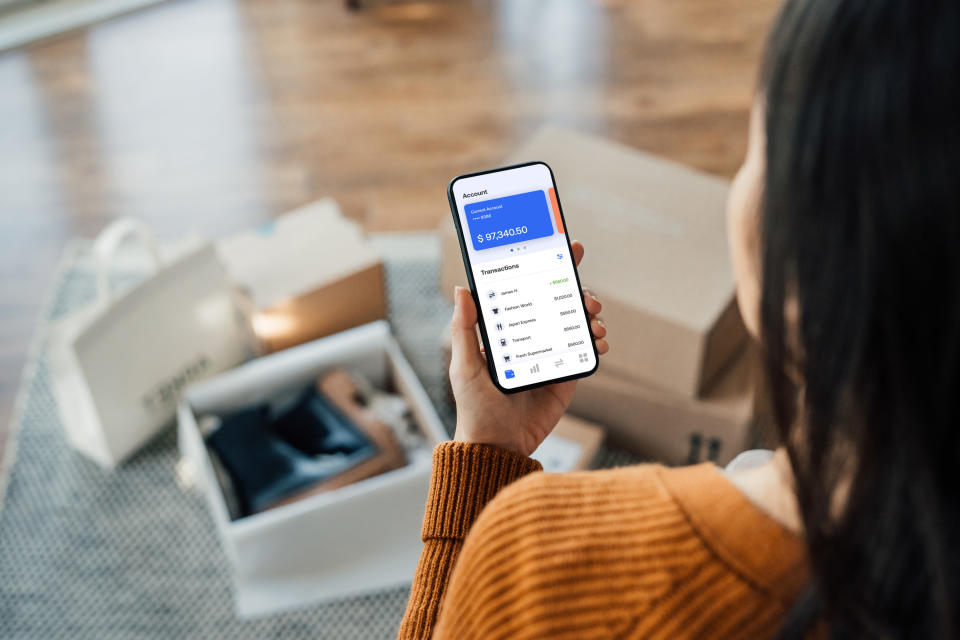
I knew that to pay down my debt and start actually saving, I had to start being more strategic with my day-to-day spending. To start, I made it part of my routine to look at my recent transactions every morning, and this small step changes my mindset about money for the rest of the day. Plus, keeping track of my spending helped me create an actually realistic budget.
And tracking my spending also got me to ask myself questions before I buy something, like: Will I realistically use this? How many hours of work does this cost? Is there something else that I need or want more? What else could this money do for me? Just taking a few minutes to stop and think really helps me spend more wisely. I still get myself little treats here and there, but now I'm budgeting for them and have a better sense of what I can *actually* afford.
4.I used to save random amounts of money at random times, and really struggled with growing my funds.

In my 20s, I didn't really make plans to save money. Instead I just saved whatever was left over at the end of the month, which was very often nothing. Or I would transfer money into savings only to transfer it back to my checking account the next week to cover my bills. Saving was a struggle.
In my 30s, I've learned to pay myself first and save consistently.
NBC / Via giphy.com
As a brand-new finance writer, I learned about paying myself first, which means contributing to my savings right after I get my paycheck. To make it easier, I set up automatic deposits so I don't even have to think about it. I started saving $20 every other week just to get into the habit, while continuing to pay down debt.
Now, in my 30s, paying myself first applies to my savings and investing accounts for retirement (but more on that in a minute).
5.In my 20s, I relied on debt to cover unexpected bills.
NBC / Via giphy.com
Since it was so hard for me to save, any little bill that I didn't see coming could really knock me off course financially. Car repairs would end up on my credit card, and medical bills went into long and grueling payment plans.
Now I'm growing my emergency fund so I can pay some surprise bills in cash.
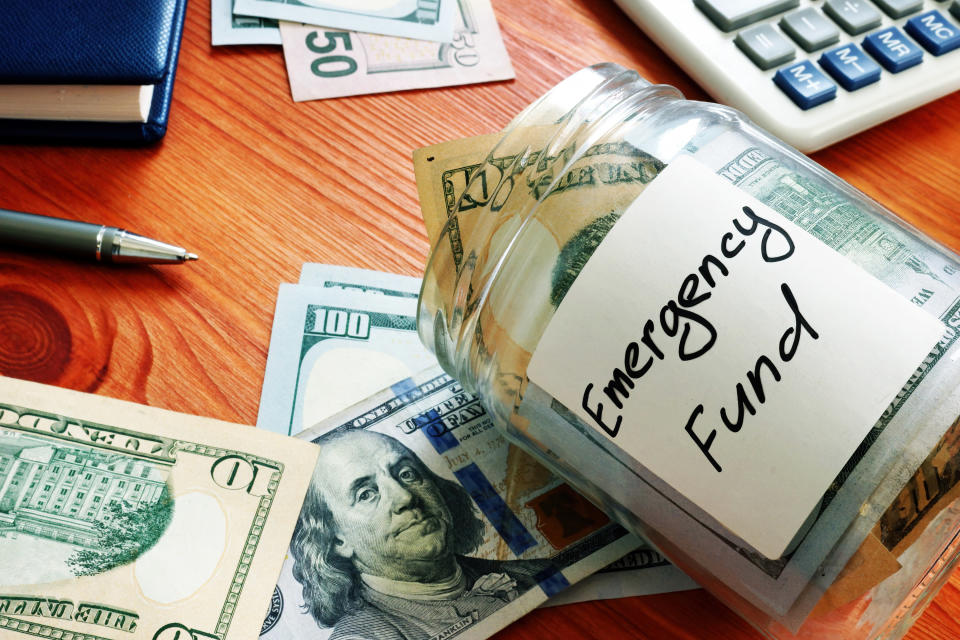
After I finished snowballing my debts (which took a few years), I took the money I was spending on debt payoff and started stashing it in my emergency savings instead. Personal finance experts recommend having three to six months worth of expenses saved up in an emergency fund. This cash can really come in handy if you ever lose your job or get hit with one of life's little surprises.
To be totally honest, I've never made it to that recommended amount because life just keeps happening. But at about a month and a half's worth of my expenses, I'm closer to that guideline now than I've ever been. Knowing that I have some money in the bank for a rainy day makes me feel so much more secure than I used to. Every dollar that I'm able to save now is a dollar I won't have to pay back with interest if a surprise bill comes along.
6.I barely saved anything for retirement in my 20s.
NBC / Via giphy.com
I didn't have access to a 401(k) through work until I was about 27, and I initially tried to turn it down because I didn't think I could afford to contribute. The woman in charge of my company's benefits was really kind to me and took me aside to explain that the sooner I could invest, the better it would be for me later on. I ended up enrolling because I didn't want to disappoint her, but only contributed like 1% of my income — missing out on the employer match. It didn't add up to much, but I'm still glad I did it because it got my retirement fund started.
Now I'm laser-focused on saving as much as I can for my future.
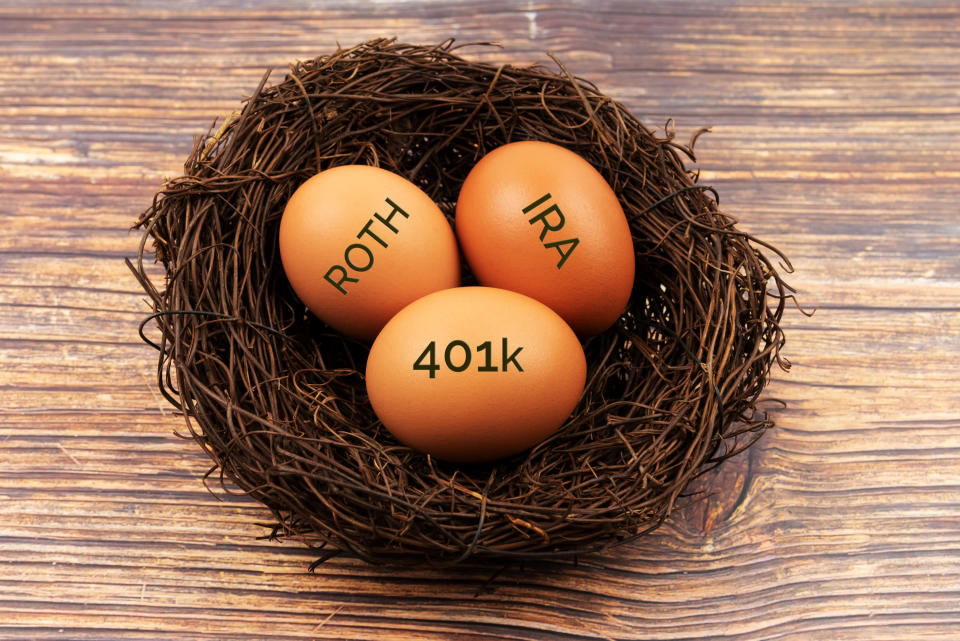
Before I got my first editing job in my early 30s, I started earning around $40,000 a year working as a freelance finance writer, doing contract work, and bartending and waiting tables (basically my whole life was a side hustle at that point), and gradually began making more money. As my income crept up, I did my best to keep my bills and spending about the same, and I opened an IRA to save for retirement independently. And these days, I always invest in a 401(k) when it's offered to me. The biggest new expense that I took on was spending more for health insurance that actually covers more of my needs. It works out to spending less on healthcare in the long run, but I don't think I could have afforded it month-to-month before — a perfectly infuriating example of something that costs more when you have less money.
They say you should have about one year's worth of income saved by the time you're 30. I'm in my mid-30s now and have about a quarter of that amount. I don't plan to ever buy a house or have kids, so my retirement fund is my number-one priority. Sometimes it feels like I'll never catch up, but I used to feel that way about my debt too. I get discouraged, but I remind myself that it'll take time for all the work I'm doing now to really add up.
7.Finally, I used to use my debit card or cash for most of my purchases.
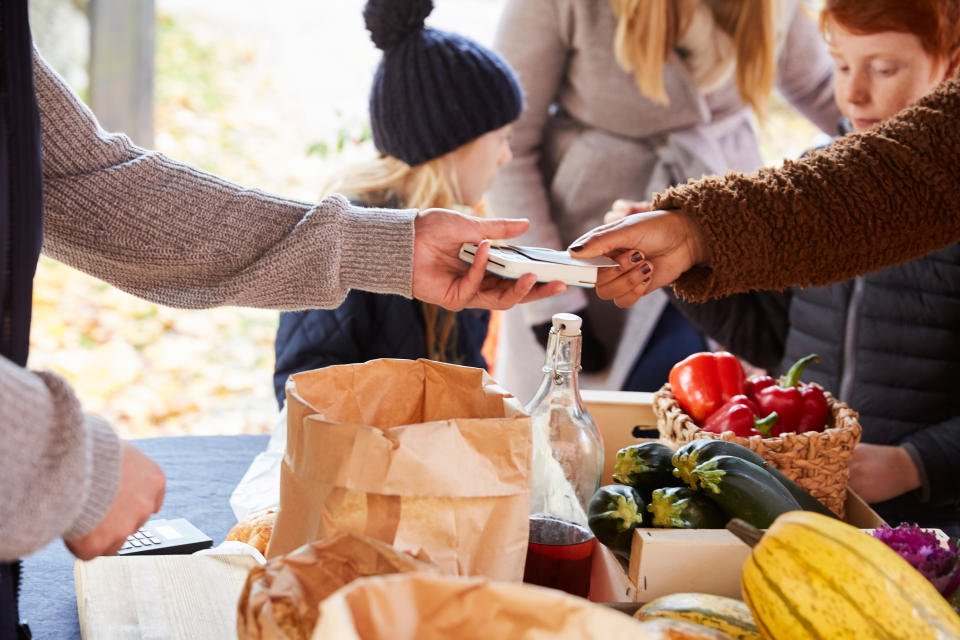
In my 20s, my credit card was strictly for emergencies. And since I mostly just made minimum payments, my credit card balance never went down. So it felt safer and more responsible to do most of my spending in cash or with my debit card to keep my debt from spiraling completely out of control. I still think this was the right move for me during that time.
But in my 30s, I'm all about getting the most cash back I can with my credit card.
NBC / Via giphy.com
After I paid off my credit card debt, I slowly worked up to using my cash back card for more and more of my expenses. I also started paying my card off in full every week to avoid carrying a balance.
Then, each month I transfer my cash back rewards to my IRA so I can invest a little more for retirement. I'm also into reward stacking, where I use my credit card with several rewards apps to get even more cash back. This way, my money goes a little further on most things that I buy, and I get more money back to invest in my future.
Becoming more financially literate has made a huge difference in my life, so it's super rewarding to be able to share what I've learned in conversations with friends and in my work.
But financial literacy is just one piece of the puzzle. There are also broader systemic issues that need to be addressed to make financial security accessible to all. Still, I think that being open about our money experiences helps us learn from each other by showing what really works and what doesn't.
Now I'm curious — if you're in your 30s, has the way you handle your money changed? Share your experiences in the comments.
And for more stories about life and money, check out the rest of our personal finance posts.
